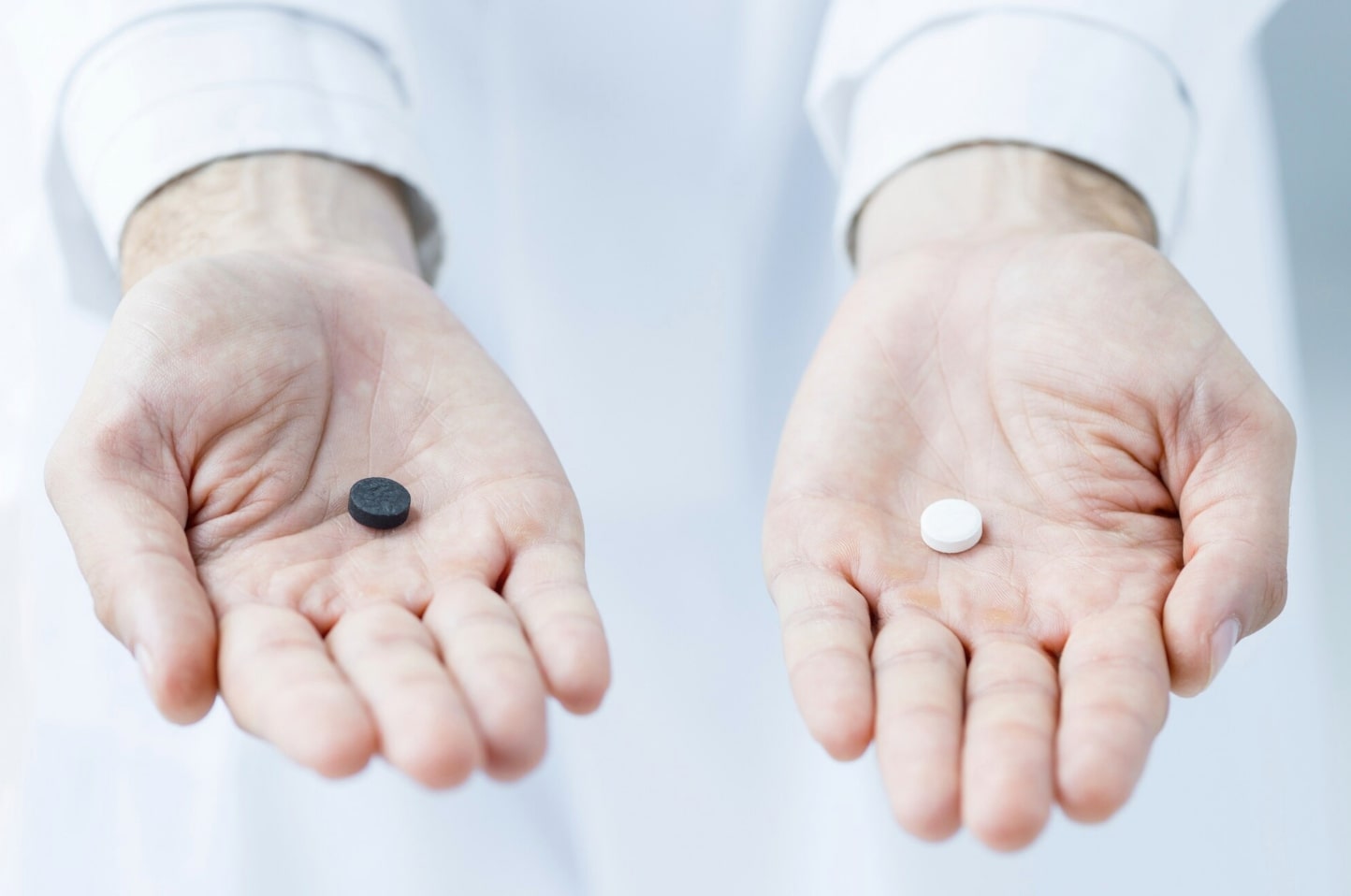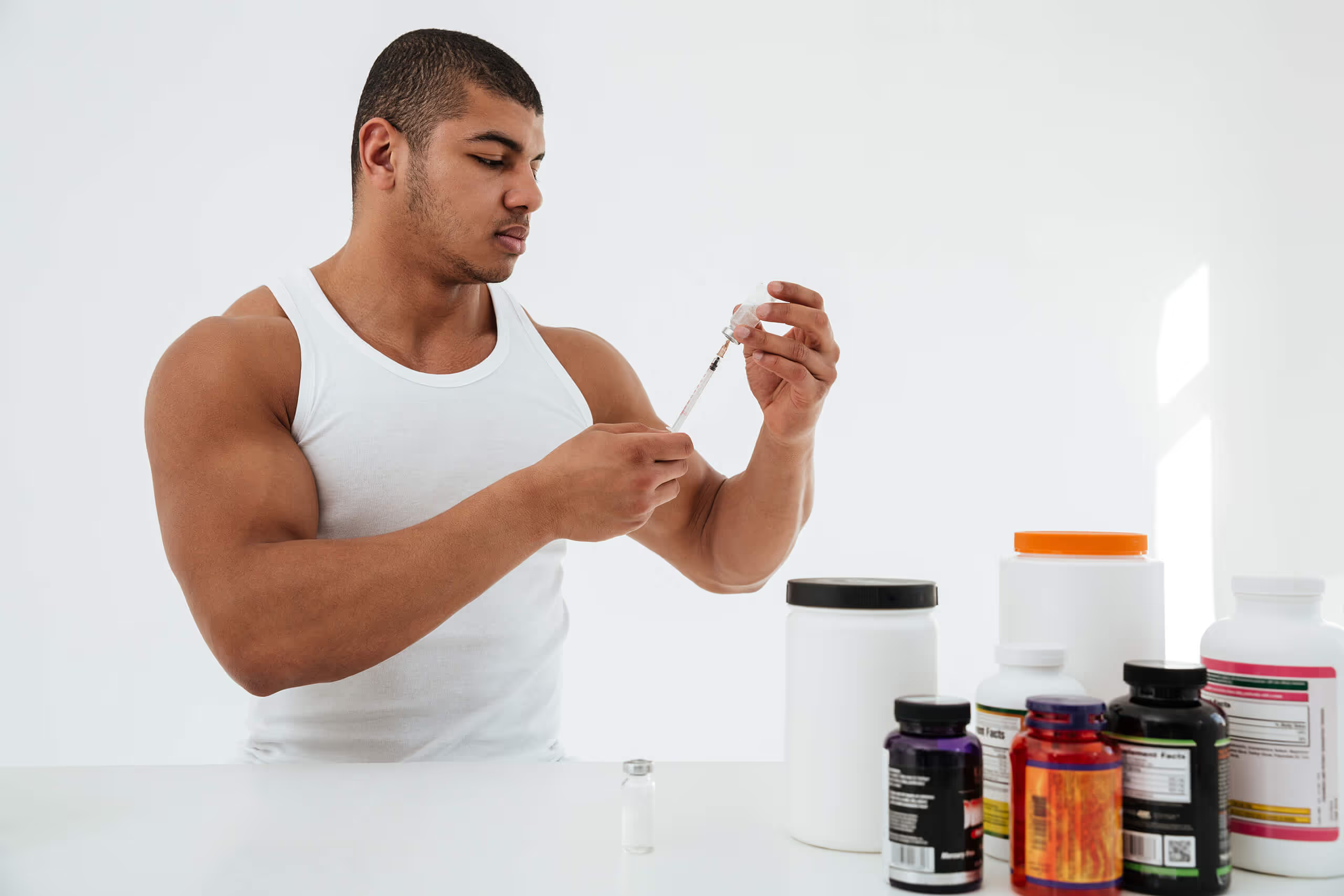What causes erectile disfunction?
Erectile dysfunction may be caused by a variety of factors.
- Heart disease
- Low testosterone
- Work stress
- Tobacco use
- Depression
- Obesity
- Medications
- Diabetes
- Alcohol
- High cholesterol
- Enlarged prostate
- Relationship issues
Signs of erectile dysfunction
Difficulty maintaining an erection
Low testosterone
Premature ejaculation
Difficulty achieving an erection
Reduced sexual desire
Treatments
Products may include compounded products which have not been approved by Health Canada. Health Canada does not verify the safety or effectiveness of compounded drugs.
Improve your sex life
Increase your confidence and endurance in the bedroom once again.

ED medical specialists
Work with men’s health experts who speak your language, plain and simple. Just the facts and the fix.

Discreet, fast appointments
Privacy and efficiency reign supreme. Get in, get treated, and get on with your life.

Cutting-edge therapies
From Shockwave to the PRP for ED and beyond, access the right ED treatment according to your unique circumstance.
Blog
No limits—just performance day in and day out
At Gameday, our vision extends beyond health services. Together, we’re creating a world where every man feels empowered to perform his best and live confidently.
Start your
best life
Get noticeable results in weeks with personalized treatments, expert guidance, and deep commitment to your well-being.
Frequently Asked Questions
What causes erectile dysfunction?
Erectile dysfunction (ED) can result from a variety of factors, often a combination of physical and psychological causes. Common physical causes include cardiovascular diseases, high blood pressure, diabetes, obesity, hormonal imbalances (such as low testosterone), and certain medications. Lifestyle factors like smoking, excessive alcohol consumption, and lack of physical activity can also contribute. Psychological causes may include stress, anxiety, depression, or relationship challenges.
Fortunately, there are several treatment options available depending on the underlying cause. We offer advanced solutions like the Trimix injections, and medications such as Viagra and Cialis. Each of these treatments is tailored to help improve erectile function and overall health.
Consult with our healthcare professionals to learn more and find the most suitable treatment for your needs.
What is the best treatment for erectile dysfunction?
The best treatment for ED varies for each individual. At Gameday Men’s Health, we offer a range of personalized treatments, including advanced medications, innovative therapies, and lifestyle modifications.
The experienced specialists work closely with you to determine the most effective and suitable treatment options. With the expertise and your commitment, overcoming ED is not just a possibility – it’s a reality. Regain your confidence and enhance your intimate life with the support of Gameday Men’s Health.
What is erectile dysfunction?
Erectile Dysfunction (ED) is a complex medical condition that affects men’s ability to achieve and maintain a firm erection during sexual activity. It is a multifaceted issue influenced by both physical and psychological factors. Physically, ED often stems from problems with blood flow to the penis. When the blood flow is insufficient or hindered, it prevents the penis from becoming rigid enough to engage in sexual intercourse.
One of the primary physical causes of ED is vascular problems, where conditions like atherosclerosis (hardening of the arteries) restrict blood flow, affecting the ability of the penis to fill with blood and create an erection. Neurological disorders, hormonal imbalances (such as low testosterone levels), and certain medications can also interfere with the complex processes that lead to an erection. Additionally, lifestyle factors like smoking, excessive alcohol consumption, obesity, and lack of physical activity can contribute significantly to the development of ED. While erectile dysfunction is often connected with physical causes, psychological factors can independently lead to or exacerbate ED. Conditions like stress, anxiety, depression, or relationship issues can create a vicious cycle where ED causes emotional distress, which worsens ED symptoms.
Understanding the underlying cause of ED is crucial for effective treatment. It’s not just a matter of sexual performance; ED can significantly impact a man’s self-esteem, relationships, and overall quality of life. Seeking help from a specialized men’s health clinic like Gameday Men’s Health is essential. Their comprehensive approach combines medical expertise, cutting-edge diagnostics, and personalized treatment plans to address ED, ensuring a tailored solution that restores confidence and intimacy in men’s lives.
How do you know if you have erectile dysfunction?
Recognizing ED involves paying attention to persistent difficulties in achieving or maintaining an erection. Our clinic provides a discreet and comfortable environment to discuss your concerns openly. Our expert staff will guide you through the process, ensuring you receive a thorough evaluation and precise diagnosis.
How long does erectile dysfunction last?
The duration of erectile dysfunction (ED) is highly individual and can vary widely from person to person. It depends on a range of factors, including the underlying cause of ED, the individual’s overall health, lifestyle choices, and the effectiveness of the treatment pursued. For some, erectile dysfunction might be a temporary issue arising due to stress, anxiety, or a specific event, and it could resolve on its own or with minimal intervention.
However, if ED persists over an extended period, it’s essential to seek professional help. Chronic conditions like diabetes, heart disease, or hormonal imbalances often require ongoing management, and ED could be a long-term concern in such cases.
At Gameday Men’s Health, our approach to ED is comprehensive and personalized. We conduct thorough assessments to understand the specific factors contributing to your condition. Based on this evaluation, we design tailored treatment plans that focus on addressing the immediate symptoms and the underlying causes. We aim to provide sustainable solutions that improve your sexual health and overall well-being.
By offering evidence-based treatments and ongoing support, Gameday Men’s Health aims to assist you in overcoming ED and regaining your confidence. We understand the sensitive nature of this condition and provide a supportive environment where you can openly discuss your concerns. With the right treatment, commitment, and support, many men experience significant improvements in their erectile function, leading to a more satisfying and fulfilling intimate life. Remember, taking that first step towards seeking help is crucial, and with the right help, ED can often be effectively managed and even resolved.
How common is erectile dysfunction?
ED affects many men, and you’re not alone in facing this challenge. Gameday Men’s Health has successfully helped numerous individuals overcome ED, providing them with renewed confidence and improved quality of life. Our experienced team understands the complexities of this condition, offering tailored solutions that are both effective and discreet.
How is erectile dysfunction diagnosed?
Diagnosing erectile dysfunction involves a comprehensive evaluation with a knowledgeable, trained provider with modern ED treatment options. At Gameday Men’s Health, the experienced healthcare providers utilize state-of-the-art diagnostic tools and techniques to identify your ED’s underlying causes precisely. This accurate diagnosis allows us to develop a targeted and effective treatment plan tailored to your needs.
%20(1).avif)












